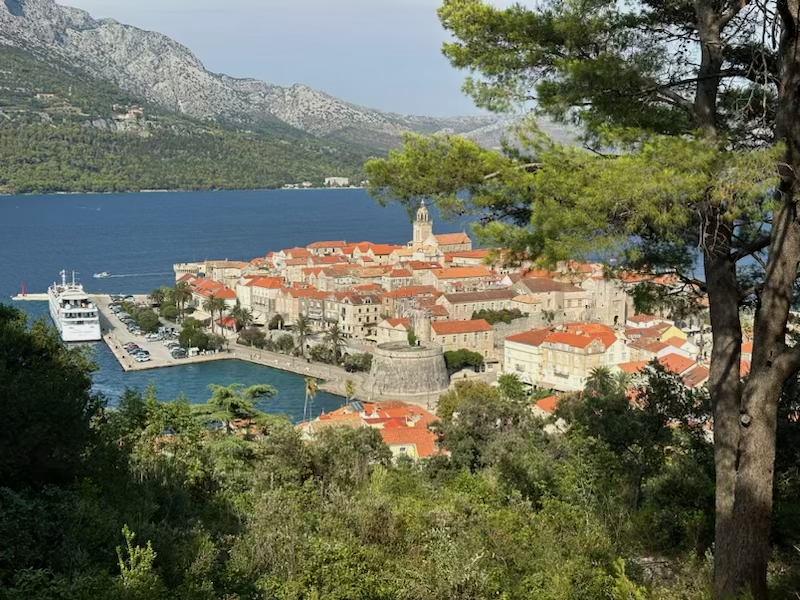Still working plus some vacation.
Africa’s Development in Historical Perspective
I finally finished the book. Essentially, Africa’s Development in Historical Perspective is a collection of papers by a bunch of interdisciplinary authors who each try to provide some sort of explanation for specific phenomena regarding sub-Saharan economic development. While Jared Diamond and Acemoğlu have their own big history perspectives that try to explain all global development differences at once with a consolidated grand theory, the authors of Africa’s Development in Historical Perspective tackle more specific issues, providing a more nuanced picture of this complex and controversial topic. Together, their work forms a socio-economic anthology of varying keyhole perspectives into African development.
As a reference (mainly for my own benefit), I’ll jot down the main arguments and my thoughts each chapter.
| Chapter | Summary/Thoughts |
|---|---|
| Africa in World History before ca. 1440 (Ehret) | - One of the most useful chapters for a broad-strokes big history picture of pre-colonial sub-Saharan Africa - Most interesting point is that the first known instance of cattle herding in world history was achieve by Northern Sudanese, a fact that is rarely discussed - Cushitic peoples also were the first to domesticate donkeys, between 6500 and 4000 BCE - Main argument is that the African continent did fall behind the main trends and pathways of human history prior to the mid-15th century |
| Reversal of Fortune and Socioeconomic Development in the Atlantic World (Inikori) | - Inikori compares development patterns in West Africa and the Americas between 1400 and 1850, with a focus on market activity - He argues that the transatlantic slave trade and colonial emphasis on commodity production caused a reversal of fortune that limited West Africa’s market development - He cites himself a lot |
| The Impact of Malaria on African Development over the Longue Durée (Weil) | - Quite possibly my favourite chapter in the book - Discusses proposed theories about how malaria may have inhibited economic development in Sub-Saharan Africa due to disease burden - While this certainly seems to be the case today, it is less clear whether malaria-related illnesses were responsible for stagnating African development historically - Weil uses the presence of sickle cell traits to estimate historic malaria disease burden - He then determines whether regions with higher disease burden have less development compared to similar regions with less disease burden - It is shown (using some clever epidemiological modelling to address major gaps in historical data) that worse health environments have both lower populations and a higher standard of living, a reversal of the expected relationship - In other words, malaria historically seems to be associated with a higher standard of living in Sub-Saharan Africa - Weil proposes that this might be due to the high concentration of deaths among children under four, which (he argues) would not impact adult productivity or settlement decisions - An interesting topic with compelling empirical evidence and creative, but thorough, analysis and a potentially controversial finding |
| African Population, 1650–2000: Comparisons and Implications of New Estimates (Manning) | - Essentially argues that African populations were historically similar in density to those in South Asia and Southeast Asia - I personally don’t find his evidence very compelling, he primarily relies on criticisms of bias in sources claiming smaller populations (which is not positive evidence to the contrary) and somewhat circular reasoning that since populations in other regions were much larger, then African populations “should” follow similar patterns (therefore African populations must be similar to other regions) |
| Redistributive Pressures in Sub-Saharan Africa: Causes, Consequences, and Coping Strategies (Platteau) | - In my opinion, this is the worst chapter in the book by far and should be skipped, unless you are interested in a case study on the pitfalls of outsider-led ethnographies - Platteau uses anecdotes and overgeneralisations to argue that kinship-based redistribution pressures (which he claims are held generally throughout the entire continent) are responsible for stagnated economic development in Sub-Saharan Africa - Are these values quantified? No. Does Platteau attempt to provide a consistent definition definition of the kinship pressures of which he speaks so that other regions, say Western Europe (which could easily be argued to also have kinship pressures similar to the ones he describes), could be evaluated in the same framework? Also no. - Clearly the largest grievance here is Platteau’s absolute failure to specify exactly exactly which cultures he is talking about - He provides a few specific West African examples then tries to argue that whatever cultural attitudes he inferred generalise to the entire continent - I guarantee that if this paper was shared among actual Africans Platteau would be laughed out of the room - Platteau concludes, of course, by claiming that “universal religions with a powerful God” (specifically Christian missionaries) have helped to resolve these alleged cultural failings by brining in new skills and securing “opportunities for social differentiation” |
| Accumulation and Conspicuous Consumption: The Poverty of Entrepreneurship in Western Nigeria, ca. 1850–1930 (Olukoju) | - To my knowledge this is the first chapter authored by an actual African, providing a change from the potentially Eurocentric previous chapters - Olukoju uses case studies of specific historical West Nigerian entrepreneurs to argue that both cultural contexts and colonial constraints contributed to the underdevelopment of African regions- Essentially a direct response to the previous chapter, in substance, specificity, and conclusion |
| Commerce, Credit, and Mobility in Late Nineteenth-Century Gold Coast: Changing Dynamics in Euro-African Trade (Akyeampong) | - Akyeampong uses a variety of case studies, mostly consisting of letters written or dictated by actual Western Nigerian entrepreneurs to British partners to illustrate how colonial rule initially undermined cheifs’ power and enterprise, but ultimately served to permanently embed historic chiefs in key business positions - I quite enjoyed hearing the personal stories of historic West African entrepreneurs; their clear individuality and agency provides a more personal perspective of West African colonial relations that can often be missed in bigger picture discussions |
| The Textile Industry of Eastern Africa in the Longue Durée (Clarence-Smith) | - Argues that East Africa was not a captive market for South Asian goods, but instead a partner in textile production, countering popular narratives that textile production in Africa was stagnated - Instead, specific colonial polices, such as Portuguese Prime Minister António de Oliveira Salazar’s ban on the creation of textile mills in Portuguese colonies, stymied African industries (which had previously been of modest size, comparable to South Asia) |
| Explaining and Evaluating the Cash Crop Revolution in the “Peasant” Colonies of Tropical Africa, ca. 1890–ca.1930: Beyond “Vent for Surplus” (Austin) | - This chapter, I think, is of more use to economists with a particular interest in the set of theories Austin discusses and less so for understanding African development in any practical way |
| Reinventing the Wheel: The Economic Benefits of Wheeled Transportation in Early Colonial British West Africa (Chaves, Engerman, and Robinson) | - Explores why wheeled transportation was not used in sub-Saharan Africa until the early colonial period, despite having contact with wheel-using civilisations, and instead favoured less-efficient head porterage - The authors argue that contrary to popular explanation, head porterage was not more economically rational than wheeled transport using draught animals - They instead argue that wheel transport was not adopted due to both a lack of political centralisation and an interest of European powers n restricting technology adaptation by African polities - This chapter was of particular interest to me given my work mapping African public transit systems, however the explanations given do not seem to be particularly enlightening and seem over-generalised - I would have much preferred a country or sub-regional level analysis of barriers to adopting wheeled transit, which could have gotten much more specific |
| Mbanza Kongo/São Salvador: Culture and the Transformation of an African City, 1491 to 1670s (Heywood) | - This chapter finally gives me the regional and temporal specificity that I crave - A really excellent look at the history and culture of Mbanza Kongo (called São Salvador from the 1570s), established as an administrative and political capital by collaboration between Kongo kings and Portuguese missionaries |
| The Fragile Revolution: Rethinking War and Development in Africa’s Violent Nineteenth Century (Reid) | - Argues that the 1800s were a particularly violent century in African history, analogising this to the relationship between state formation, economic development, and organised violence in European history (in my opinion a fairly limited perspective and unnecessarily teleological view of history) - Controversially proposes that the significance of the colonial state is exaggerated and is only the latest stage in an ongoing process of violent transformation, something I am not sure if I agree with (though of course this statement needs to be contextualised to a specific state or region to have any meaning) |
| The Imperial Peace (Bates) | - In direct contrast to the previous chapter, argues that the political order established by European powers likely slowed African development - Uses poor quality data to show that polities based on rulers and bureaucracies are associated with higher levels of political order (though this relationship could obviously be reverse causality), and a relationship between warfare and political centralisation (again, a strong candidate for circular or reverse causality) |
| Dahomey in the World: Dahomean Rulers and European Demands, 1726–1894 (Thornton) | - I find the Dahomey very interesting so I was quite pleased with this chapter - This chapter counters prevailing view on the Dahomey as a parasitic slaving state (claims used to ultimately justify the kingdom’s colonisation by France) with the narrative that the empire was essentially forced into its position in the slave trade by external factors, likening the empire’s militaristic culture to that of European states - This argument is supported, most uniquely, by letters written by Dahomean monarchs themselves - In these letters, it is clear that capturing people is not the goal of the wars engaged in by the Dahomey |
| The Transatlantic Slave Trade and the Evolution of Political Authority in West Africa (Whatley) | - Argues that transatlantic slave trade impacted African political authority even prior to colonisation (and affected development much more substantially), leading to extractive institutions and high levels of regionalism - This is mainly caused by the economic shock resulting from slavery-induced depopulation, changing West African warfare and increasing absolutism as individuals were more willing to relinquish freedoms for safety in a highly dangerous environment (if you lived in West Africa between 1700 and 1850, you had a one in five chance of being caught up in the translatlantic slave trade at some point in your life) - In a fun GIS exercise, the author merges the locations of slave trading ports with locations of societies in Murdock’s Ethnographic Atlas to determine whether proximity to slaving ports correlates with absolutist political structures (though the validity of this is dubious, given the data source and reverse causality issues) |
| Gender and Missionary Influence in Colonial Africas (Nunn) | - Argues that presence of Christain missionaries, especially Protestant missionaries (as Protestants explicitly believed that both men and women must read the Bible to go to heaven), are correlated with better education outcomes for women in post-colonial African countries - Given that education was pivotal to missionary conversion tactics during the colonial era (and as a result missionaries were predominant providers of education), this seems plausible - Given that the Murdock dataset is used again to support these claims, I am more interested in checking it out to see how credible the data is |
Life and Stuff
Moved into a new house, went on a family biking trip from Croatia to Montenegro, and did an escape room.

Korčula’s street layout is shaped like a fishbone to protect the town from Mediterranean winds.
 Alec was very excited about the Eames chair.
Alec was very excited about the Eames chair.
 The guy at the escape room place said no one had ever used the props to do this before.
The guy at the escape room place said no one had ever used the props to do this before.
As for work, I’m still plugging away at my neural network for predicting flooding in South Sudan. There likely won’t be too many fun graphs or updates as a plow through the technical weeds over the next few months, but I’m looking forward to having a fully deployed model and paper draft by the end of the year. Check this page for updates.